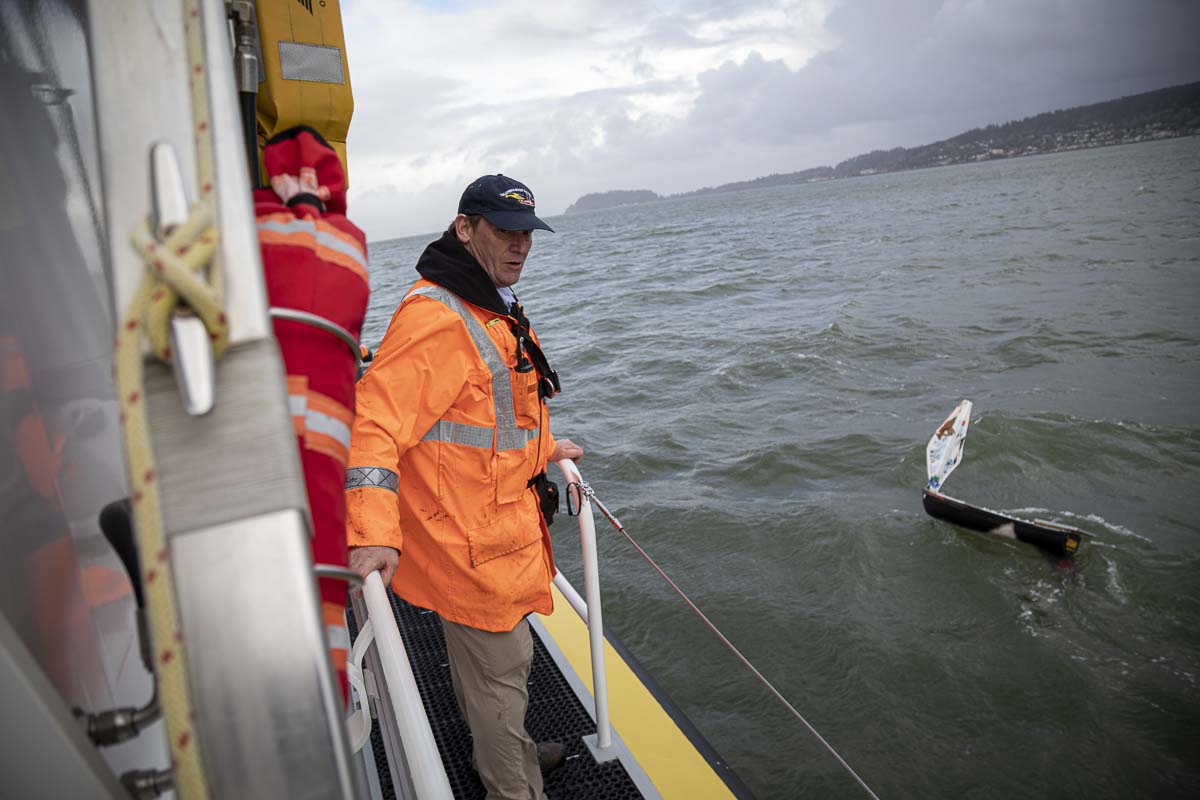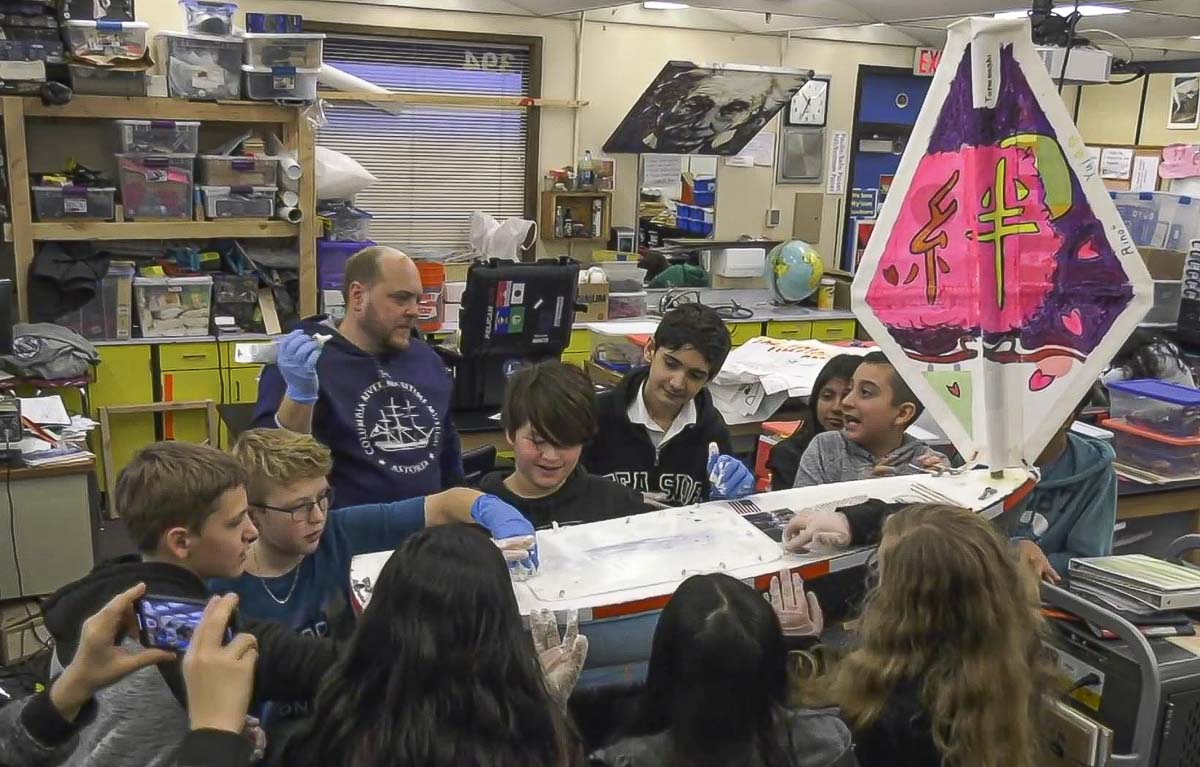Columbia River Maritime Museum develops new ways to continue seafaring education
VANCOUVER — How do you convert an in-person team effort into a program for remote learning? You mobilize.
The Columbia River Maritime Museum’s (CRMM) mini-boat program has faced many challenges in its time, but none quite like the pandemic and online school. In an effort to maintain the project that gives students a hands on experience in nautical-know-how, the program is going virtual and hitting the road.

Through museum resources and the support of regional communities through GoFundMe, CRMM is partnering with school districts once again to teach via Zoom and build the boats via a new trailer that can go to each participating student’s home so they can contribute to the process.
“One of our sort of overall themes of the mini-boat program has always been perseverance,” said CRMM Education Director Nate Sandel. “You build a boat and you try and you fail and you try again. We have to be leaders as educators, and show our students that we can persevere when we’re throwing a curveball.”
In the past, the process has started with a school partnering with CRMM and then having workshop days with students. Sandel typically works hands-on in the classroom with elementary and middle school students to teach about sailing and the ocean, as well as to construct the boat.
This year, with students learning from home, Sandel will still be teaching, using Zoom, just like many teachers. Students lead the project, he said, they select their roles and assign tasks for team members.
This is where the mini-boat makerspace comes in. The museum is currently raising funds to purchase a trailer and pop-up covering to bring the mini-boat components to students wherever they are. The trailer will house the special solar components, nautical paint, tools boat hulls, and boat cradles for doing the work.
Here in Clark County, the Vancouver School District has partnered with CRMM through Eisenhower Elementary school this year. One of the school’s fifth grade teachers will be working with Sandel to safely set up the mobile station for each student who wants to participate.
“This trailer physically brings it to students, the parking lot of their apartment complex or nearby park, or their driveway,” Sandel said. “We’ll always have two adults in a safe location. And, you know, we’ve been wearing PPE since before it was cool, always wearing the gloves and the masks. I just thought that’s the perfect thing. That shows, I think, the commitment that the museum has to how important hands on education is to us.”

More than 1,200 students have come through the mini-boat program, which works with schools all over southwest Washington and northwest Oregon. The boats, once completed by each “department” of students, are then launched with the help of the Coast Guard or the Bar Pilots, are tracked via GPS as they make their way towards the country of Japan.
The program typically would launch during the first week of school, but to allow teachers to get settled in with the remote learning platform, they have moved the start week to the first of October, Sandel said.
“With the unchartered waters that we’re in, it’s going to take a lot more resources to meet our students’ needs this year,” he said. “We’re in the same boat as everybody else. I think having this trailer, it’s sort of the make-or-break. Having a safe workspace to bring to them, I think is a big sort of breakthrough.”
To learn more about the mini-boat program, visit crmm.org. To donate to the new version of the project and the mini-boat makerspace trailer, visit the GoFundMe page here.




